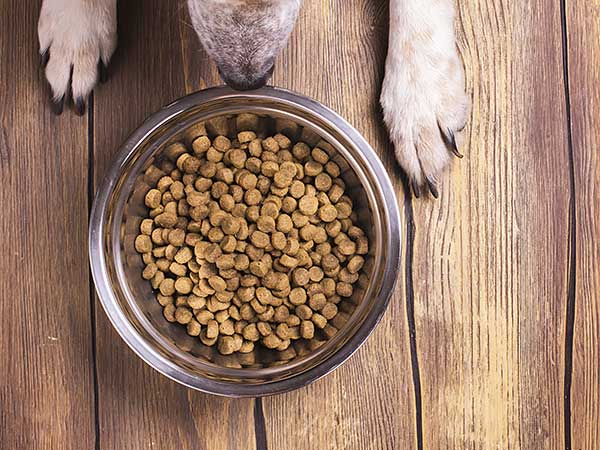
Common Causes And Solutions For Dog Food Allergies
Grains are by far the most common causes of dog food allergies. Grains are not something that a wolf traditionally ate and dogs are not that far removed from wolves. Other plant foods can also cause problems. Allergies, as well as other health problems, are related to dietary items that were not eaten by the animal's ancestors. This holds true with humans, too.
Wolves are not strictly meat eaters. They will munch on nuts, dig up root vegetables and even nibble on apples that have fallen on the ground. They will even eat grass. Of course, they will also eat plant matter from the intestines of prey. It may have to do with the percentage of grain or other plant foods included in the commercially prepared feed.
Wheat is an example of a grain that has been a staple for hundreds of years. Manufacturers of processed animal and people foods seem to put wheat in just about everything, primarily because it is cheap. It's more or less a type of cheap filler.
However, wheat contains gluten, which causes problems for many humans and many of their pets. Gluten is also found in barley and rye. The name in Latin means "glue". It is what makes pizza dough look elastic and is often added to foods simply to make it chewy. In pet foods, gluten is sometimes added to artificially increase the protein content.

happy_lark / stock.adobe.com
The quality of many commercial dog foods is poor and can result in allergic reactions in dogs (not to mention other impacts on health from the low nutritional value found in some foods).
It can be difficult to determine which ingredient a pet is allergic to. Some dogs are not allergic to gluten, per se. They are only allergic to wheat. They can consume other kinds of grains. Some breeds seem to be allergic to all grains.
A dog food allergy can develop over time. For example, some Australian Shepherd owners have found that their dogs were once able to eat grain-based foods. When allergic symptoms developed, they were originally blamed on other things. But, eliminating grains from the diet eventually solved their problems.
Look Out For Symptoms Of Dog Food Allergies
The signs of dog food allergies are often mistakenly blamed on fleas. The symptoms include itching and scratching that may result in hair loss above the eyes, around the ears and on the hindquarters. Assuming you are using a good flea preventative, those symptoms are probably some type of allergic reaction.
In some cases, the symptoms are caused by an environmental factor. For example, the material the dog's bed is made out of or an unusual plant growing outside. Environmental causes typically present after a move or when some kind of change is made. Dogs do not usually develop environmental allergies.
If it is a dog food allergy that is causing the symptoms, it becomes necessary to isolate and eliminate the allergen. In order to do that, you need to change the feed. Most vets recommend changing the feed gradually in order to avoid digestive upset and add confusion to the problem.
Boredom is sometimes blamed for biting, scratching and self-mutilation. In the case of working breeds like the Australian Shepherd, boredom could be the issue if the dogs are not being worked. When kept as pets, they need a lot of exercise to be healthy and happy.
Dog food allergy can be caused by ingredients other than wheat. Usually, it is one of the protein-rich foods. Beef or even chicken could be the problem.
Consulting a veterinarian is often recommended, but unless the vet is an allergy specialist, you might not get a clear answer. The first step is to look at the ingredients in the brand of dog food you are currently using. The next step is to find a brand that does not contain the same types of protein.
For example, hypoallergenic foods are often made with lamb, because it is a less common choice for animal feed. Hypoallergenic foods are not always the answer to dog food allergies, but it is the solution that vets usually try first. With a little trial and error you should soon figure out what is triggering the allergic response in your dog and eliminate the culprit from their diet to their, and your, relief.
For more information about Aussie health issues see the Australian Shepherd Health & Genetics Institute (ASHGI).
Have Dog Training Questions?
Check out these introductory dog training videos...
I want my dog to stop being aggressive.
I want some help training my new puppy.
I want my dog to stop barking at everything.
Get Australian Shepherd Info, Website Updates, Special Offers, and Cartoons...
FREE GIFT
You'll also receive a free copy of the ebook
My Everyday Dog Training Tools
by professional dog trainer Daniel Abdelnoor, "Doggy Dan"









